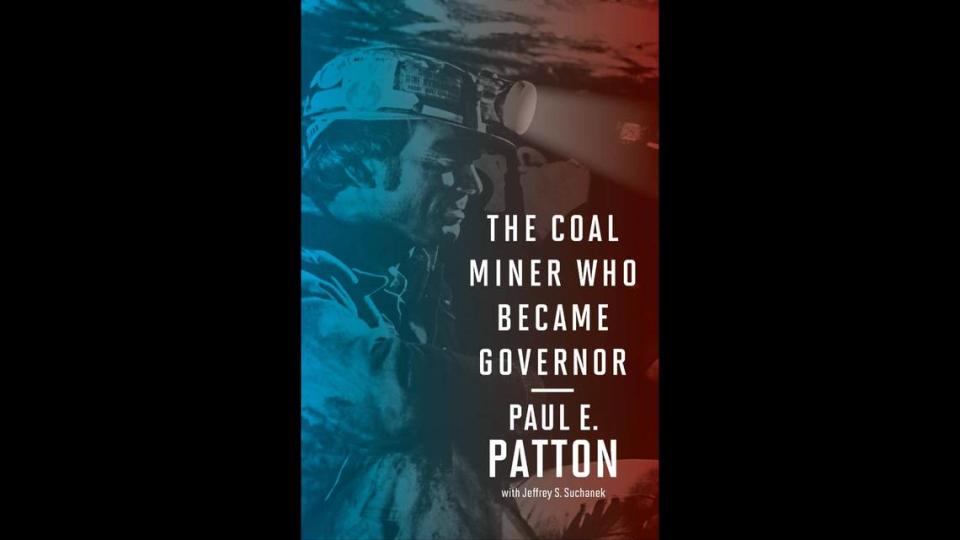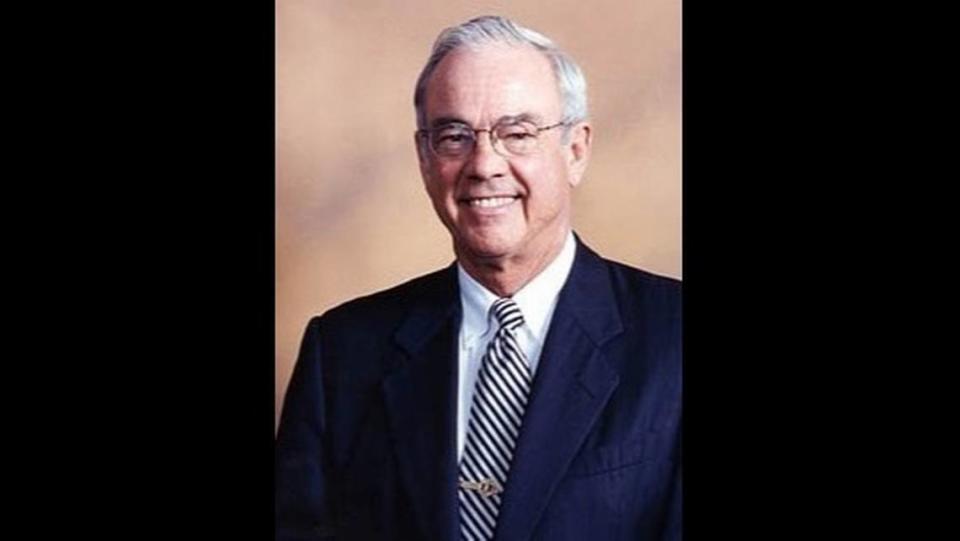“The Coal Miner Who Became Governor” tells us everything but what we really want to know | Opinion
- Oops!Something went wrong.Please try again later.
- Oops!Something went wrong.Please try again later.
- Oops!Something went wrong.Please try again later.
What is the point of political memoirs?
Is it the juicy score settling with real and perceived enemies? Is the the nitty gritty policy details of passed laws that satisfies the policy wonk within? Is it the attempt to get real insights into what makes powerful people tick?
In the case of Paul Patton’s new memoir, “The Coal Miner Who Became Governor,” you get plenty of the former and almost none of the latter.
Patton accomplished many things as governor and well after, but is unwilling or unable to garner the self-reflection to examine the big self-inflicted wound that stopped his political career in its tracks.
Patton will be appearing at the Kentucky Book Festival on Oct. 21 at 2 p.m. as part of the “Memoirs on the Main Stage” discussion alongside writers Erin Keane, Richard Taylor, Don Lane and John Boel.

The book was written with the help of Jeffrey Suchanek, an oral historian at the University of Kentucky, who started interviewing Patton in 2014. Those interviews were transcribed and turned into the book, with extra details added by Patton. Unfortunately, it takes away the folksy and very funny voice of real-life Patton and turns him back into the engineer he first trained as.
Mostly, just the facts.
Those are plentiful and interesting. Patton got into the coal business in Eastern Kentucky, and made a lot of money doing it. Then, after he sold most of his coal interests, he had a lot of time. As many rich men do, he got interested in Democratic politics.

He started to meet the players, and flirted with the idea of statewide office during the candidacy of John Y. Brown, with whom he campaigned around Eastern Kentucky, noting dryly, “Brown knew I had some money after selling my coal company and was looking for something to do, since I no longer had a real job.”
Two-and-a-half terms as Pike County judge executive taught him what he needed about bricks and mortar politics (he started the first county-wide garbage collection program), and a stint as Gov. Brown’s chair of the Kentucky Democratic Party taught him the rest.
By 1991, he was lieutenant governor next to Gov. Brereton Jones, who fortuitously made him secretary of economic development. As we all know from Jones’ recent obituary, he agreed to allow his successor to be the first two-term governor, and Patton was it.
He accomplished a lot, most of it in education. There was higher ed reform, which was full of lofty ideas about research but is better known for the knock down fight to take the community colleges away from UK to create KCTCS.
He created Bucks for Brains, which used state matching funds to lure top researchers to Kentucky’s universities, and the KEES program, which helped high school students pay to get to them.
He does use these pages to recognize some shortcomings, like his disastrous workers comp bill, which alienated many Eastern Kentuckians, including House leader Greg Stumbo.
And he had an interesting perspective on the start of the inexorable rise of the Republican Party in Frankfort, starting in the Senate when two Democrats, Dan Seum and Bob Leeper, switched parties.
As many may remember, Patton was not fond of Senate President David Williams then, and he isn’t now, calling him calling him power hungry, paranoid and vindictive. But as a master operator himself, he appreciated the Republicans’ discipline and smarts and understood that Democratic dominance in Frankfort was probably over.
But his political enemies were no threat compared to his own proclivities, which ended a career that probably included a Senate seat.
On Sept. 17, 2002, Mark Hebert of WHAS-TV broke the story that Patton had been having an affair with a Western Kentucky nursing home operator named Tina Conner, mostly meeting in hotel rooms while his security detail waited outside. (The book spells her name Connor, a little insult to injury.)
“After the story broke, I knew that I had destroyed not only my political career but also my marriage to Judi,” he wrote. “Telling her the truth was devastating.”
The book does not mention his initial denials, and then a few days later, a tearful and apologetic press conference. As someone who was in Frankfort that day I remember thinking the tears were more about being sorry he got caught.
But he gives us no extra clues here, no real explanations of the intersection of power and sex, really much of anything. It just sits there, a political career in smoke, unexamined for the ages.
I would have also been interested in hearing Patton’s perspective on another downfall, that of his longtime budget director, Jim Ramsey, who practically brought down the University of Louisville in a series of scandals that made an extramarital affair look small. But Patton is silent on this point too.
Give credit where it’s due, though, Patton headed back to Pikeville and proceeded to turn Pikeville College into the regional engine known as the University of Pikeville today. As president, of course.
The memoir is enlivened by a postscript section dedicated to Judi Patton and her truly immeasurable work in improving Kentucky’s laws and programs to end domestic violence and child abuse. He says he didn’t deserve her, and he’s probably right.
Still, even if Patton could be as self-aware on the page as we would like, “The Coal Miner Who Became Governor” will be a valuable resource for political junkies and graduate students studying how Kentucky went from blue to red.
Incidentally, Patton is part of another book at the festival this year, “Gatewood: Kentucky’s Uncommon Man,” about Gatewood Galbraith, a perennial candidate who was way ahead of his time on the issue of marijuana.
Author Matthew Strandmark interviews Patton, along with U.S. Rep. Andy Barr, Rep. James Comer and Gov. Ernie Fletcher on the man who made Kentucky’s political season so much more interesting. Strandmark will be signing books and talking to readers on Oct. 21.
If you go: The 42nd annual Kentucky Book Festival will return to Joseph-Beth Booksellers in Lexington on Oct. 21, 2023. More information and the author lineup is available at https://kybookfestival.org/.

